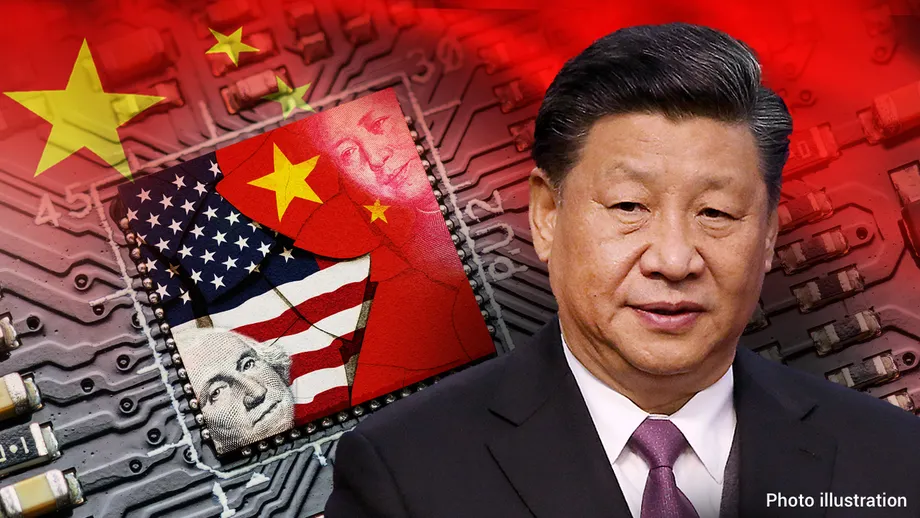Introduction
The race for artificial intelligence (AI) supremacy has become a defining feature of 21st-century geopolitics. At the center of this race is China, whose aggressive push for AI leadership has raised serious concerns among U.S. lawmakers. Recently, a prominent Republican lawmaker issued a stark warning: China is actively positioning itself to dominate the global AI landscape—a strategic move signaling the rise of China AI dominance with far-reaching consequences for international security, economics, and democratic values.
This article examines the growing alarm in Washington, the scope of China’s AI ambitions, and the implications of China AI dominance for the rest of the world.
The Lawmaker’s Warning: A Growing Threat
Who Raised the Alarm?
Rep. Mike Gallagher, chairman of the House Select Committee on the Chinese Communist Party, has emerged as one of the most vocal critics of Beijing’s AI strategy. Speaking to reporters and during committee hearings, Gallagher emphasized that China’s ambitions are not just economic—they’re ideological and strategic.
The Core Concern
Gallagher and other lawmakers argue that China’s investment in AI is not just about technological advancement but about control, both domestically and internationally. From surveillance systems to military applications, the fear is that China could use AI to entrench authoritarian power at home and expand its influence abroad.
Historical Context
U.S.-China tensions in the tech space have been brewing for over a decade, from trade wars to disputes over intellectual property. With AI now considered the crown jewel of future innovation, the stakes have never been higher. The fear of China AI dominance is rooted in this larger geopolitical rivalry.
Understanding China’s AI Strategy
Government-Led Investment and Research
China has made no secret of its desire to become the world leader in AI by 2030. The government’s “New Generation AI Development Plan” outlines a national roadmap that includes billions in funding, massive data collection initiatives, and a strong emphasis on integrating AI into both civilian and military domains.
Partnerships and Talent Development
China also invests heavily in human capital, encouraging top talent to return from overseas while forming strategic partnerships with global universities and tech firms. These efforts ensure China remains at the cutting edge of AI research and development.
Focus on Surveillance and Control
One of the most controversial aspects of China’s AI strategy is its use in surveillance. AI-powered facial recognition systems, smart city infrastructure, and predictive policing technologies are already being used across the country. This raises serious concerns about human rights and the export of these technologies to other authoritarian regimes, further solidifying China AI dominance.
The Implications of China’s AI Dominance
Global Technological Shift
If China succeeds, it could set global standards for AI ethics, deployment, and governance—standards that may not align with democratic values. This could shift the global tech balance away from Western ideals like privacy, transparency, and freedom of expression.
National Security Risks
AI is becoming central to cybersecurity, intelligence gathering, and military strategy. A dominant China could exploit this to gain an edge in cyber warfare, espionage, and even autonomous weapons development. U.S. dependence on Chinese technologies could also introduce vulnerabilities.
Economic and Ethical Implications
AI is expected to transform entire industries. If China controls core AI platforms, it could shape global markets and limit competition. Moreover, ethical concerns about AI misuse, such as mass surveillance or biased decision-making, could be exacerbated under a model that prioritizes state control over individual rights.
The U.S. Response: Can America Compete?
Current Government and Private Sector Efforts
The U.S. is not sitting idle. Federal agencies and tech giants like Google, Microsoft, and OpenAI are making major investments in AI research. The Biden administration has also released a national AI strategy focused on responsible innovation and ethical standards.
Proposed Legislative Actions
Congress is considering several bills aimed at curbing China’s tech influence, including measures to restrict the export of sensitive AI technologies and to bolster domestic semiconductor production. These efforts aim to slow down China AI dominance and reinvigorate American innovation.
The Importance of International Alliances
The U.S. is also working with allies through NATO, the G7, and the Quad to build a shared framework for AI development. These alliances are crucial for countering China’s influence and ensuring that AI serves democratic societies rather than authoritarian interests.
Conclusion: What’s at Stake in the AI Race
The warning from Republican lawmakers highlights more than just political rhetoric—it underscores a defining challenge of our time. The rise of China AI dominance could reshape the global order, impact fundamental freedoms, and tilt the balance of power toward authoritarianism.
To meet this challenge, the U.S. and its allies must invest in innovation, enact smart policy, and promote ethical AI standards. The race is not just about technology; it’s about the future values that will govern our increasingly digital world.
Don’t Miss Out! Get the Latest News, Tips, and Updates from Us!


